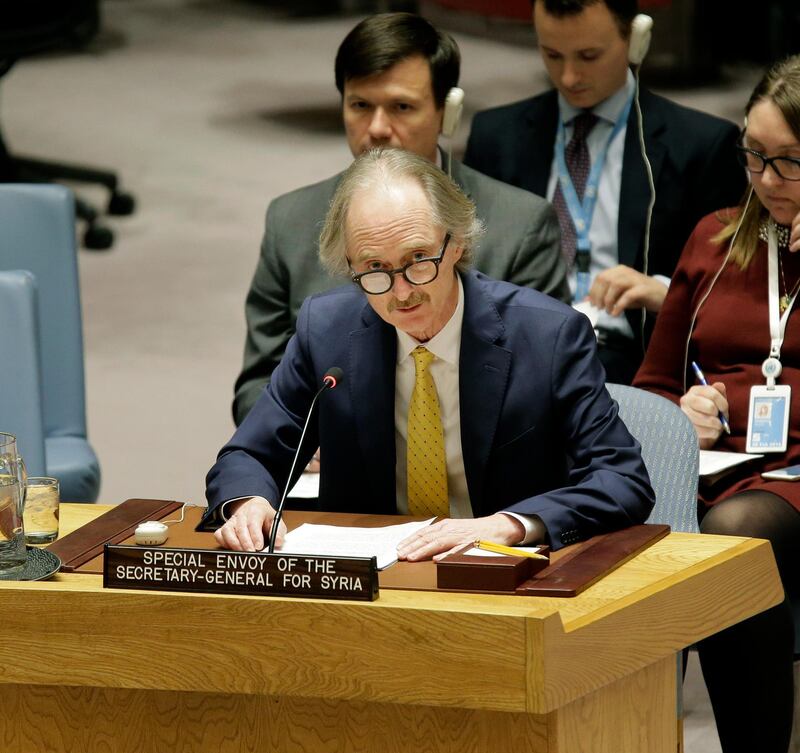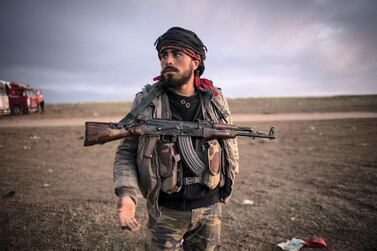The United Nations Special Envoy to Syria, Geir Pedersen, has said the transition towards the political process requires buy-in from both Syrian sides and the international community.
He said that the road-map for peace in Syria will encompass working towards four general goals: formation of a constitution, to hold UN-monitored elections, security and fighting terrorism. He made the comments in an interview with pan-Arab newspaper Asharq Al Awsat.
The former special coordinator for Lebanon was quick to note that it is not the UN’s role to draft or implement any changes to the Syrian constitution. “It’s important for me to say that we are not here to make judgments about the outcomes of the negotiations, nor is it my role to define the constitution. This is a decision taken the Syrian sovereignty,” he said in the interview.
Mr Pedersen added that achieving peace in Syria and transitioning into a functional government requires more than just Syrian actors' participation.
“The decision is clear that I work with the government and the opposition equally,” he said. “If you want to resolve a conflict, it will require talking to the Syrians but also to international and regional players.”
His mandate, he told the Arabic newspaper, is simple: to implement Resolution 2254, the Security Council-endorsed road map for peace in Syria that requires a nationwide ceasefire and the political buy-in from all engaged parties to elect 150 members to form a Constitutional Committee.
Both Syrian President Bashar Al Assad’s government and the opposition fighting to topple him have each submitted a roster of 50 names. But Russia, Iran and Turkey have disagreed over the final 50 members from civil society.
Mr Al Assad has reclaimed most of Syria with Iranian and Russian support after controlling 15 per cent of the country just a few years ago. The Syrian president, although reluctant in the past to work with UN-led efforts to set up a constitutional committee, is now seemingly willing to cooperate.
Mr Pedersen’s goal is to bring both sides together while managing expectations from foreign actors. He plans to achieve this through confidence building measures.
“I want to build my relations with both sides and deepen that relationship. By doing so we can move furthers along. Second, I want to talk about serious engagement with Syrian civil society, and finally, I need to work on the issue of detainees, missing persons and abductees,” he said.
He added that the last issue, the concern of missing persons, is a problem that affects almost every home in Syria and one that will factor when trying to resolve the conflict.
He said that bringing in the participation of the Syrian people along with the political members from both the Syrian government and opposition will be the real challenge.
“It’s normal that after eight years, people have no confidence in the political process, and I understand the tension there. But I hope that with the agreement of the government, the opposition and the international community we can go beyond that,” he told the newspaper.






